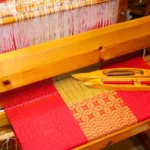Coimbatore
1st November 2022
Rejection of the levy of anti-dumping duty on MEG, a step in the right direction for the growth of MMF sector – SIMA
The Union Government has been taking various pathbreaking policy initiatives and addressing the structural issues relating to raw materials especially MMF raw materials, fibres and filament yarns to gain global competitiveness and achieve exponential growth rate in textiles and clothing manufacturing and its exports. The Government has concluded FTAs with UAE, Australia, Mauritius and also in the process of concluding FTAs with several other countries on a fast track to gain global competitiveness and boost exports. Globally, the ratio of consumption of MMF textile fibre and cotton is 65:35 while the same is reverse in India as the MMF raw materials were expensive upto 23%. The Government also has come out with Production Linked Incentive Scheme for encouraging large scale investment in the MMF segment. The Directorate General of Trade Remedies (DGTR) vide its Notification in F.No.6/8/2021-DGTR dated 27th October 2022 has rejected the proposed anti-dumping duty on Monoethylene Glycol (MEG) , a major raw material used for the manufacture of Polyester Staple Fibre.
The government has rejected the proposed anti-dumping duty on Monoethylene Glycol (MEG), a major raw material used for the manufacture of Polyester Staple Fibre.
In a Press Release issued here today, Mr. Ravi Sam, Chairman, The Southern India Mills’ Association (SIMA) has welcomed the decision of DGTR and thanked the Hon’ble Prime Minister, Shri Narendra Modi and Hon’ble Minister of Textiles, Shri Piyush Goyal for the bold decision taken on this front. He has stated that MMF particularly the polyester would be the growth engine and job creating sector. He has stated that adequate availability of polyester staple fibre at an internationally competitive rate would fuel the growth of emerging technical textile segment.
SIMA Chairman has stated that as the country started facing cotton shortage, several hundreds of spinning mills, weaving mills, knitting and garment capacities are switching over to polyester textile clothing manufacturing and thereby sustaining the financial viability of these segments apart from protecting the jobs of several lakhs of people.




